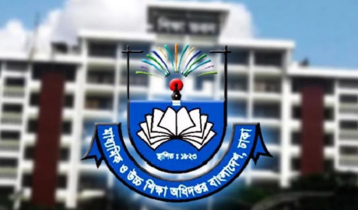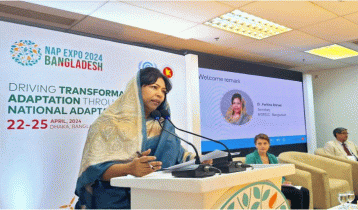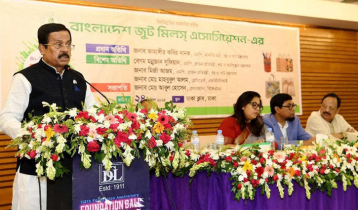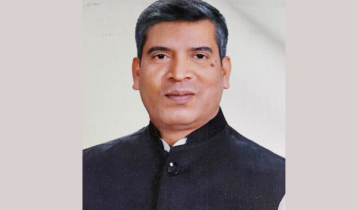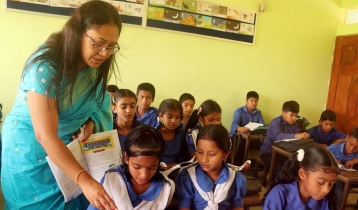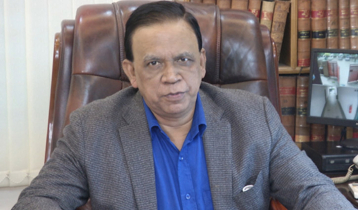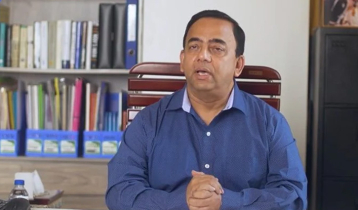Awareness must in fighting autism
Augustin Sujan || risingbd.com
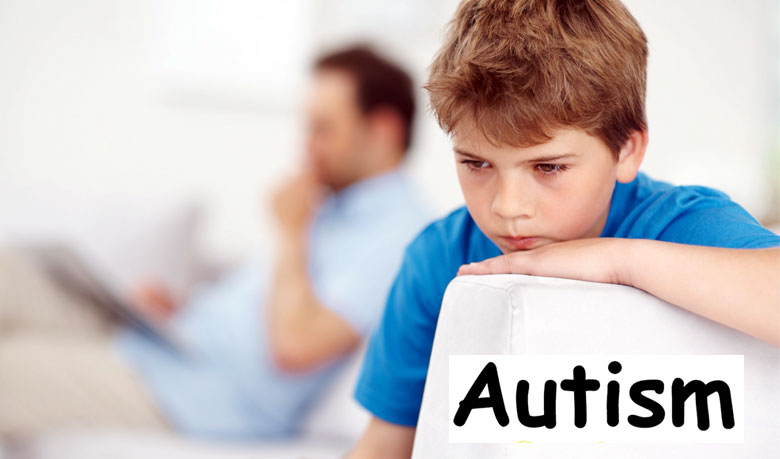
The parents of a child with ASD play a crucial role in supporting their child and improving their skills
Augustin Sujan Barai: The `World Autism Awareness Day` is being observed to raise awareness of the condition and its impact on individuals and families. Autism and other forms of disability are part of the human experience that contributes to human diversity. The United Nations General Assembly on 2008 declared April 2 as the World Autism Awareness Day to highlight the needs for enhanced initiatives of all to improve the lives of children and adults who suffer from the disorder. This year the UN announced theme of the day is "Autism and the 2030 Agenda: Inclusion and Neurodiversity".
What is autism?
Autism is a mental condition, present from early childhood, characterized by difficulty in communicating and forming relationships with other people and in using language and abstract concepts. Autism spectrum disorder (ASD) and autism are both general terms for a group of complex disorders of brain development. These disorders are characterized, in varying degrees, by difficulties in social interaction, verbal and nonverbal communication and repetitive behaviors.
Listen an inspirational song on Autism by Mahbubul A Khalid
The term autism first was used by psychiatrist Eugen Bleuler in 1908. He used it to describe a schizophrenic patient who had withdrawn into his own world. The Greek word ``autós`` meant self and the word “autism” was used by Bleuler to mean morbid self-admiration and withdrawal within self.
The pioneers in research into autism were Hans Asperger and Leo Kanner. They were working separately in the 1940’s. Asperger described very able children while Kanner described children who were severely affected. Their views remained useful for physicians for the next three decades.
According to the US Centers for Disease Control and Prevention, at present ASD affects 74 million people, or 1 percent of the world`s population.
Causes of autism
The exact cause of autism spectrum disorder (ASD) is currently unknown. It`s a complex condition and may occur as a result of genetic predisposition (a natural tendency), environmental or unknown factors. Most researchers believe that certain genes a child inherits from their parents could make them more vulnerable to developing ASD.
In many families, there appears to be a pattern of autism or related disabilities, further supporting the theory that the disorder has a genetic basis. No specific genes linked to ASD have been identified, but it may be a presenting feature of some rare genetic syndromes, including fragile X syndrome, tuberous sclerosis, congenital rubella syndrome and untreated phenylketonuria (PKU). Some harmful substances ingested during pregnancy also have been associated with an increased risk of autism.
Symptoms of autism
Autism appears to have its roots in very early brain development. The characteristic behaviors of autism spectrum disorder may be apparent in infancy (18 to 24 months), but they usually become clearer during early childhood (24 months to 6 years). However, the most obvious signs of autism and symptoms of autism tend to emerge between 2 and 3 years of age.
The main features of autism spectrum disorder (ASD) are problems with social communication and interaction and a tendency to engage in repetitive behaviors. Most children who develop autism have difficulty engaging in the give-and-take of everyday human interactions. By 8 to 10 months of age, many infants who go on to develop autism are showing some symptoms such as failure to respond to their names, reduced interest in people and delayed babbling. By toddlerhood, many children with autism have difficulty playing social games, don’t imitate the actions of others and prefer to play alone. They may fail to seek comfort or respond to parents` displays of anger or affection in typical ways.
Both children and adults with autism also tend to have difficulty interpreting what others are thinking and feeling. Most five year olds understand that other people have different thoughts, feelings and goals than they have. A person with autism may lack such understanding. This, in turn, can interfere with the ability to predict or understand another person’s actions. For those with autism have difficulty regulating emotions. This can take the form of seemingly “immature” behavior such as crying or having outbursts in inappropriate situations. It can also lead to disruptive and physically aggressive behavior. The tendency to “lose control” may be particularly pronounced in unfamiliar, overwhelming or frustrating situations. Frustration can also result in self-injurious behaviors such as head banging, hair pulling or self-biting.
Children with autism tend to be delayed in babbling and speaking and learning to use gestures. Some infants who later develop autism coo and babble during the first few months of life before losing these communicative behaviors. Others experience significant language delays and don’t begin to speak until much later. With therapy, however, most people with autism do learn to use spoken language and all can learn to communicate.
Another common difficulty of autism is the inability to understand body language, tone of voice and expressions that aren’t meant to be taken literally. Facial expressions, movements and gestures may not match what they are saying.
Unusual repetitive behaviors and a tendency to engage in a restricted range of activities are another core symptom of autism. Repetitive behaviors can take the form of intense preoccupations, or obsessions. These extreme interests can prove all the more unusual for their content or depth of knowledge. Older children and adults with autism may develop tremendous interest in numbers, symbols, dates or science topics.
If it seems to you that your child has autism, go for a diagnosis. Some people with ASD grow up without their condition being recognised, but it`s never too late to get a diagnosis. Some people may be scared of being diagnosed because they feel it will "label" them, and lower other people`s expectations of them. But there are several advantages to getting a diagnosis. It helps people with the condition and their families understand ASD and decide what sort of support they need. A diagnosis may also make it easier to access autism-specific services and claim benefits.
Treatment of Autism
There is no medicine for autism spectrum disorder (ASD). However, a range of specialist educational and behavioural programmes can help children with ASD. Having a child with autism requires taking a proactive approach to learning about the condition and its treatment while working closely with others involved in the child`s care. Parents also need to take care of themselves so that they are able to face the many challenges of having a child with autism.
The parents of a child with ASD play a crucial role in supporting their child and improving their skills. If your child has ASD, it`s a good idea to find out as much as you can about the condition. Families and the educational system are the main resources for treatment.
Communication is particularly challenging for children with ASD. Helping your child to communicate can reduce anxiety and improve behaviour. Scientific studies have demonstrated that early intensive behavioral intervention improves learning, communication and social skills in young children with autism. While the outcomes of early intervention vary, all children benefit. Researchers have developed a number of effective early intervention models.
A growing body of research suggests that a woman can reduce her risk of having a child with autism by taking prenatal vitamins containing folic acid and eating a diet rich in folic acid (at least 600 mcg a day) during the months before and after conception.
As there is no medicine for autism spectrum disorder, awareness must to fight the challenges. Parents and other family members can help the autistics best to win the challenges. Autistics can be cured in nursing. So the autistics need extra care and love and to do that all should be aware to fight the challenges of autism.
risingbd/DHAKA/Apr 02, 2016/Augustin Sujan
risingbd.com









